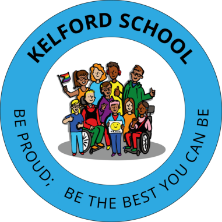Mathematics
Intent: As a core subject, Mathematics is recognised not just as a vital part of our curriculum, but as an essential tool for everyday life. It is vital that pupils are given every opportunity to build skills to support them to understand and change the world. We provide all pupils with a high-quality mathematical education, laying the foundation for understanding and applying mathematics in their world. Mathematic learning begins at the earliest stage of development, long before the acquisition of number skills and at Kelford we aim to ensure that all of our learners have the building blocks for success within mathematics, recognising that mastery of key knowledge and skill concepts is essential in order to progress. We aim to foster and promote a love of mathematical learning and enable pupils to develop core functional skills that will support them in everyday life.
Implementation: From EYFS to the end of 6th form, Maths remains a core aspect of the curriculum. Learning is divided in to the following 3 areas:
Number: Pre-numerate skills; Explore and play with number; Early number; Number and Place Value; Addition and subtraction; multiplication and division; Fractions; Statistics.
Shape, Space and Pattern (Geometry): Explore and play – Shape, space and pattern; 2D & 3D shape; Position and direction; Pattern.
Measure: Time, Money, Size, Weight, Length, Capacity.
Maths is taught as part of core learning for learners on our yellow pathway, or discretely 4 times a week. Each of the 3 areas of learning are covered during each topic as highlighted in our long term plans, however learning is weighted more heavily towards number as a key functional skill. In KS4 and 6th Form pupils have the opportunity to work towards and achieve entry level, and level 1 and 2 functional skills accreditations. Teachers have the flexibility to plan for bespoke learning based on individual need and learning pathway.
Impact: Pupils will learn the functionality of numbers and how to apply the knowledge and skills embedded in their long-term memory, enabling them to apply mathematical skills and problem-solving in life beyond school.
